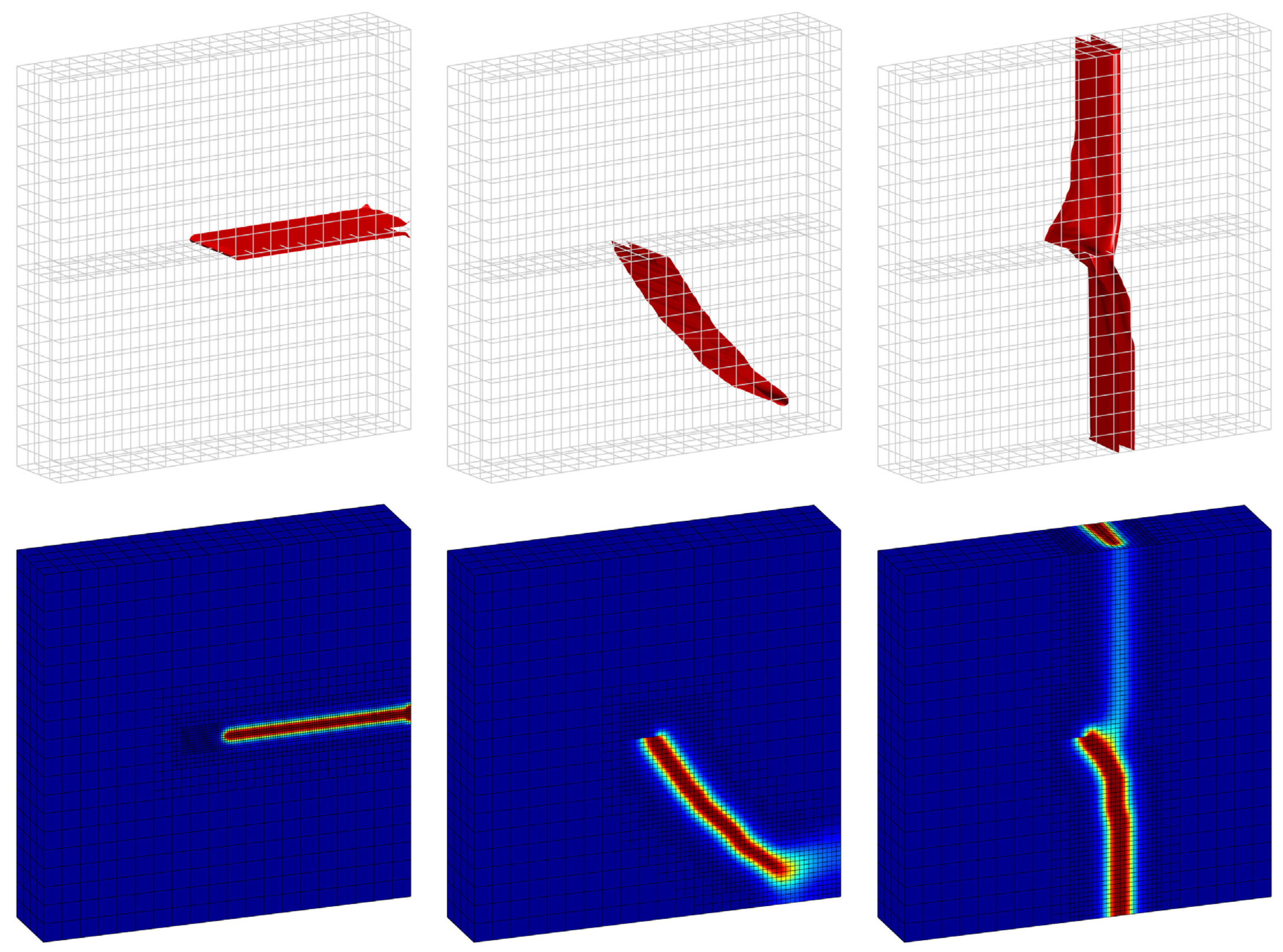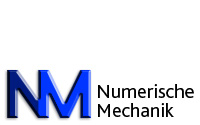DFG-Projekt HE 5943/5
Large-scale simulation of pneumatic and hydraulic fracture with a phase-field approach
One of the main challenges in computational fracture mechanics is to predict and track crack paths and fragmentation patterns. In fact, besides the high demands on the modeling side, the complicated structure and non-regular behavior of cracks requires highly sophisticated mesh refinement and discretization techniques. Both aspects turn the numerical simulation of crack problems into a difficult task, thereby providing a major obstacle for the development of efficient and reliable simulation tools in fracture mechanics. It is the goal of this project to address this challenge by developing a new theoretical and methodological framework for fracture mechanics, which will in particular allow for the numerical simulation of large-scale problems on recent and upcoming parallel architectures. In order to achieve this goal, on the modeling side, the framework will exploit phase-field models as a novel approaches for the representation of crack interfaces. On the side of the discretisation methods, we will be able to make use new technologies as NURBS based ansatz spaces. One important aspect of these discretisation methods is their superior stability properties when compared to traditional Lagrangian approaches. In particular in the context of large deformations, this is a considerable advantage. This stability, however, comes at a price, as NURBS require the consistent handling of larger patches which poses challenges when it comes to the development of efficient adaptive techniques. Here, with patchwise or lightweight adaptivity, we will employ recent developments combining the flexibility of traditional refinement techniques with a patchwise view on the discretisation, thereby allowing for the design of efficient approaches on massively parallel architectures.

In addition to the new phase-field based approach for
fracture we will also extend our new framework in order to deal
with contact and frictional effects along the larger interior
crack interfaces. In this way, our new framework will be
capable of dealing with both, strongly non-linear as well as
non-smooth effects, in a consistent manner.This project will
build on complimentary expertise in engineering, modeling,
computational science, and high performance computing in order
to establish a common basis for the development of
non-conventional finite element methods for large-scale
simulations of variationally and thermodynamically consistent
multi-physics phase-field fracture models undergoing finite
deformations. The new framework emerging from this project will
provide a number of new and non-standard computational tools,
which will be developed and tested along the simulation of
pneumatic and hydraulic fracturing. However, the resulting
framework will be designed in a flexible way which will allow
its application also beyond hydraulic fracturing, thereby on
the long run possibly serving as the basis for a new class of
modeling and simulation tools.
Group: M.Sc. Carola Bilgen, Dr. Roger
Alexander Müller (Lugano), M.Sc. Friedemann Streich
(Karlsruhe), Prof. Dr. Christian Hesch, Prof. Dr. Rolf Krause
(Lugano), Prof. Dr. Kerstin Weinberg
Subproject of: SPP 1748: Reliable Simulation
Techniques in Solid Mechanics - Development of Non-Standard
Discretisation Methods, Mechanical and Mathematical
Analysis
More Detail:
